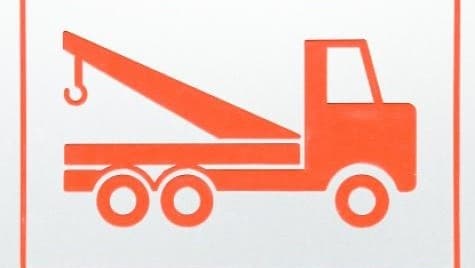
Get rid of your debt faster with debt relief
Choose your debt amount
Or speak to a debt consultant 844-731-0836
- 4 min read
- Learn the differences between a voluntary repossession and standard repossession.
- Understand your responsibilities regarding a deficiency balance you will owe.
- Get help with your debt if you cannot manage the debt payoff on your own.
- Start your FREE debt assessment
What is the difference between a voluntary repossession and one where the vehicle is snatched by a repossession person from the auto or home lender?
What is the meaning of a voluntary repossession? Also, which affects your credit report more; a voluntary repo or a regular repo? And, is voluntary repossession only for autos or are there home voluntary repossessions too?
Repossession is where a creditor holding the title to the property takes possession of the property from the debtor. It is typically related to an automobile repossession but can also apply to any asset, and there is such a thing as a voluntary house repossession.
What is Voluntary Repossession?
"Voluntary repossession" is a term used to describe a situation in which a consumer voluntarily surrenders the property securing a loan, such as an automobile, to the lender that financed the purchase. Voluntary repossessions generally occur when a consumer has fallen behind on their loan payments and decides to surrender the property rather than forcing the creditor to proceed with repossession. Voluntary repossessions occur most frequently with vehicles but can occur with any type of secured loan, such as the purchase of work equipment, jewelry, etc.
One of the most common consequences of a voluntary repossession is that the sale of the vehicle does not cover your debt. It is critical that you deal with any outstanding debt.
Now, on to your questions about voluntary repossession. To voluntarily surrender your automobile or other property to the lender that financed its purchase, you would first need to contact the creditor to explain the fact that you can no longer afford your monthly payments and that you wish to surrender the property. At that point, the lender will likely provide you with a location at which you can safely turn over the property and tell you any details you need to know about its procedures for processing voluntary repossessions.
Do not be surprised if your creditor is resistant to your request to voluntarily surrender your vehicle; the lender will likely try to work with you to figure out a way for you to keep the loan current and retain the property. These efforts may actually help you in figuring out a way to maintain the loan. However, if you are sure that you cannot afford the loan payments, voluntarily surrendering your vehicle can be a reasonable choice.
How does a voluntary repossession compare to a standard repossession?
In regard to your credit, both a voluntary repossession and a standard repossession have the same effect on your credit rating. They will both appear as repossessions and will both result in a significant negative mark on your credit history. Under the FCRA, a repossession will appear on a credit report for 7 years from the date of first delinquency. You will likely see your credit score drop substantially, as having a repossession in your credit history marks you as a credit risk.
However, if you truly cannot afford your car payments and are falling behind, it is likely that your vehicle will be forcefully repossessed if you do not take the initiative to surrender it first. The primary benefit of a voluntary repossession is that the costs associated with the process tend to be significantly less than those associated with a forced repossession, which could save you a lot of money as you work to pay off the remaining balance of the debt.
Deficiency Balance
Even if you surrender your vehicle to your lender voluntarily, the lender has the legal right to collect any balance remaining on the debt after the car is sold at auction. This type of debt is referred to as a "deficiency balance." The creditor may even file a lawsuit against you to collect on the unpaid deficiency balance. You should, therefore only proceed with a voluntary repossession if you truly cannot afford the loan, as you will likely still owe the lender a significant amount of money, even after you no longer have the use and benefit of the property.
A deficiency balance is an unsecured debt, which the law treats the same as credit card debt, a payday loan, or medical debt, among other consumer debts. To see your rights and options for resolving the deficiency balance, read "Collections Advice."
For more information about credit and credit scoring, I encourage you to visit the credit help page. In addition, Bills.com offers a wealth of information for consumers struggling with their debts, available on the debt help page.
I wish you the best of luck in resolving your financial difficulties.
I hope this information helps you Find. Learn & Save.Best,
Bill

Get rid of your debt faster with debt relief
Take the first step towards a debt-free life with personalized debt reduction strategies.
Choose your debt amount
Or speak to a debt consultant 844-731-0836